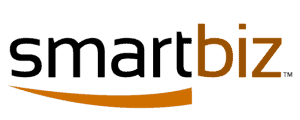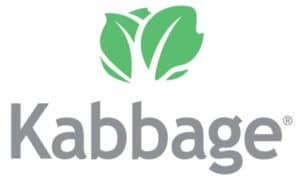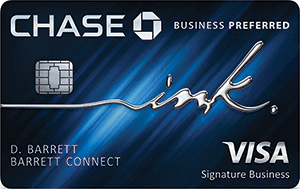The Best Medical Practice Business Loans & Financing Options

Doctors are among the top-paid professionals in America, but the cost of doing business sure isn’t cheap. There’s the pricey medical equipment, medical licensing costs (not to mention the cost of medical school to earn those licenses!), malpractice insurance, practice management software, medical association fees … and the list goes on. On top of the steep expenses associated with running any type of medical clinic, the slow nature of insurance reimbursements means you are often not even paid for your services in a timely manner.
On the bright side, doctors and other medical professionals are prime candidates for business financing, as they have low default rates and plenty of business collateral in the event that they do default. Whether you decide to go through a bank or an alternative (online) lender will depend partly on your qualifications as a borrower and partly on what you need the loan for. In this post, I explore which types of loans and specific lenders are best suited for different medical practice loan purposes.
| Financing Need | Best Loan Type | Recommended Lender |
|---|---|---|
| Building a new clinic | Bank loan | Lendio |
| Purchasing medical equipment | Term loan or Equipment financing | OnDeck |
| Working capital | Term loan or Line of credit | Fundation |
| Practice expansion | SBA loan | SmartBiz |
| Hiring & payroll | Business line of credit | Kabbage |
| Cash flow shortages | Business credit card | Ink Business Preferred From Chase |
| Emergency funds | Short-term loan | LoanBuilder |
Table of Contents
- Best Loan For Building A New Medical Clinic
- Best Loan For Purchasing Medical Equipment
- Best Loan For Working Capital
- Best Loan For Medical Practice Expansion
- Best Loan For Medical Clinic Hiring & Payroll
- Best Loan For Cash-Flow Shortages
- Best Loan For Emergency Funds
- Do Banks Offer Medical Practice Business Loans?
- What To Consider When Choosing A Lender
- What You’ll Need To Apply For A Medical Practice Loan
- Final Thoughts
Best Loan For Building A New Medical Clinic
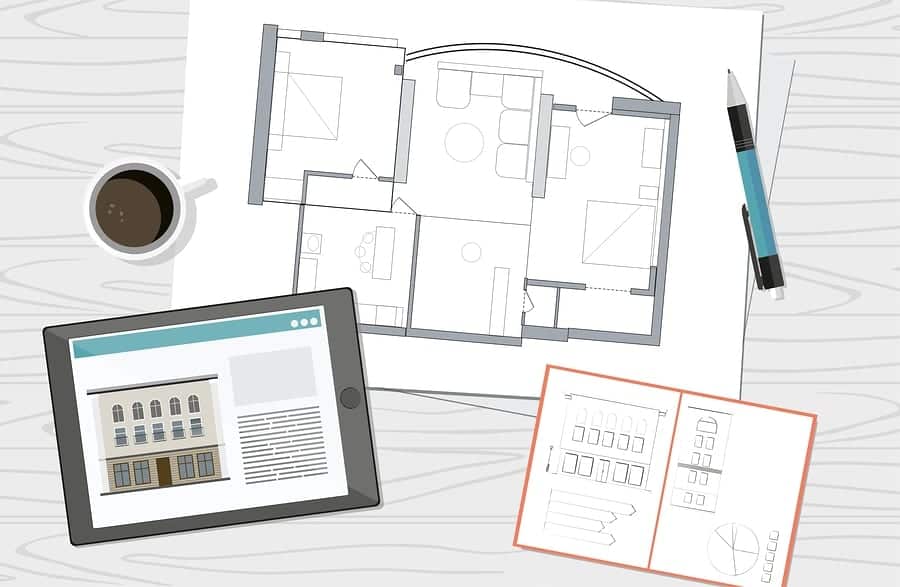
Private practices looking to open a new medical clinic will sometimes need a business loan to build and open their clinic, including both construction and other startup costs. In order to take on such an endeavor, you will likely need a large sum of money that will, in many cases, exceed the amount of capital you could feasibly borrow from an online lender (online lenders’ borrowing limits tend to max out around $500K). Even if you are moving into an existing building, you’ll need a sizable loan to outfit your new clinic with equipment, insurance, staff, etc.
Bank Loan
A bank loan is usually going to be the best option to open a brand-new medical clinic. Bank of America, US Bank, Wells Fargo, and many other banks and credit unions across the country offer specialized loans for medical practices, in large amounts that can cover the cost of a new construction.
This is a good option for doctors who can wait up to several months to get a long-term loan to finance their new office or clinic. To qualify for a bank loan, you’ll need strong business credentials and a down payment, but if you are in the position where opening your own medical clinic is the next logical step for you, you probably already have these qualifications.
Recommended Option: Lendio
Although Lendio is technically an online lending service, they connect borrowers with bank loans as well. Their partners include both big banks and credit unions, making it easy to borrow as much as $5 million to build and open your new medical clinic. Lendio does not originate loans; rather, they serve as a one-stop shop for business financing by connecting borrowers with appropriate lenders in on online marketplace.
Lendio is a good option for medical practice construction loans, as Lendio will shop your request around and present the best loan offers, so you can easily compare offers and decide on the best loan for your business.
To learn more about commercial construction loan options, read Commercial Construction Loans: The Ultimate Guide.
Best Loan For Purchasing Medical Equipment
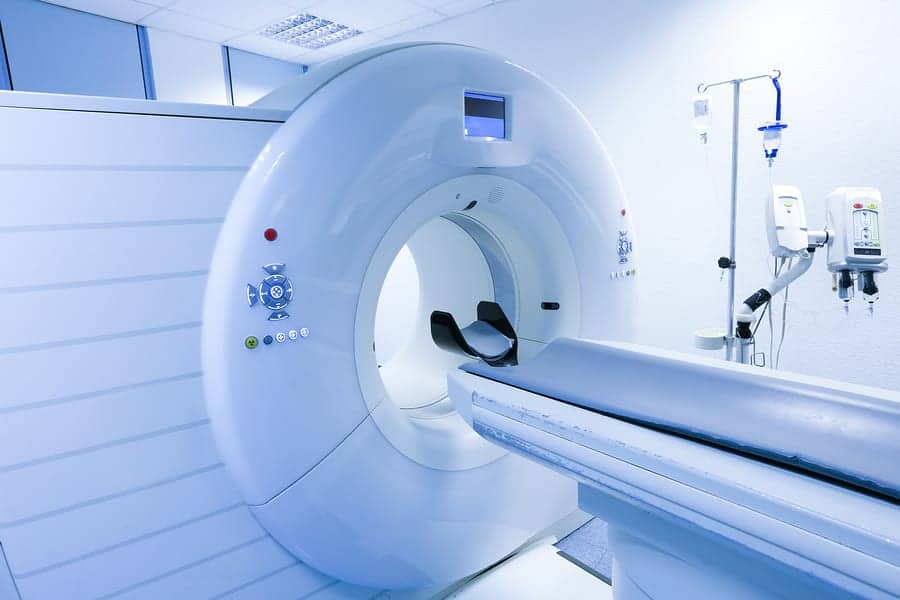
Often, medical practices need to purchase medical equipment but don’t have the capital to buy the equipment outright. Some reasons for needing a medical equipment loan could include replacing broken equipment, investing in new technologies, buying equipment to expand your services, replacing outdated equipment to meet new industry regulations, or buying equipment to outfit a new practice.
Term Loan Or Equipment Financing
There are various ways to finance a major equipment purchase, but two common financing types for this purpose are term loans and equipment financing. A term loan is a traditional installment loan wherein borrowers receive a lump sum that is repaid in installments over a period of several months to years, depending on the term length. You can obtain a term loan from either a bank or an alternative/online lender; if you are purchasing multiple pieces of equipment for a new practice, or a very costly item such as an MRI machine, you may need to pursue a bank loan.
Equipment financing is another way for medical businesses to purchase equipment and is also suitable for very large equipment purchases, such as a CAT scanner. This type of financing includes both leases and loans, and is typically self-securing, meaning it doesn’t require any collateral other than the equipment itself. Leases are a more expensive way to secure equipment, as you do not own the equipment at the end of the term—but if your borrower qualifications (credit score, time in business, etc.) are weak, this type of financing is easier to get than an equipment loan or term loan.
Recommended Option: OnDeck
OnDeck offers fast, easy, short-term business loans that work great for one-time purchases such as medical equipment for a new or existing practice. This online lender originates loans of up to $500K, with term lengths of up to 3 years. To prequalify, you only need 12 months in business and $100K in revenue. Having fair credit may not be a problem, but more qualified applicants will receive lower interest rates.
With a time to funding of just a few days, an OnDeck loan is especially useful when you need to replace broken medical equipment ASAP and can’t wait a month or two for a bank loan to come through.
If you prefer to go the equipment financing route, check out our chart of the best equipment financing lenders.
Best Loan For Working Capital

Working capital, i.e., money to run your day-to-day business operations, is the lifeblood of any business—especially for doctors, who might have to wait long stretches between insurance reimbursements. Whether you work as a surgeon, dentist, chiropractor, dermatologist, spider vein specialist, or any other type of doctor, you coffers need to be full even if your appointment book is also full.
Term Loan Or Line Of Credit
A term loan is always an option for working capital, and many online lenders offer loans with “working capital” right in the loan description. A term loan is suitable for short- or medium-term working capital needs. A working capital (term) loan is a good “general” type of business loan to have if you have various expenses you need to cover in the near-future.
A line of credit is another option, and one more suited for long-term working capital needs. With an LOC, you can withdraw cash only as needed and only need to repay what you borrow. You can think of a line of credit as a sort of “cash cushion” to tide you over during short times, even if you don’t know if or when those slim times will arise.
Recommended Option: Fundation
Fundation offers installment loans up to $500K and lines of credit up to $100K to shore up your working capital funds. Term loans are repaid on a bi-weekly basis, while lines of credit are repaid monthly. You will need to have an established business with at least 3 full-time employees (including yourself) in order to apply, so not all businesses will qualify. But if you meet the qualifications, Fundation is one of the highest-quality loan/LOC providers online, with competitive terms, excellent customer service, no prepayment penalty, and a time to funding of only 2–7 days.
To learn about more working capital loan options, read Working Capital Loans: What They Are And Where To Find Them.
Best Loan For Medical Practice Expansion

When it’s time to expand your medical practice by opening a second clinic, it’s also likely time to take out another loan. Whether you are constructing or purchasing a new office space to see patients, you are likely a very qualified borrower at this point in terms of your revenues, time in business, collateral, etc. Thus, you can likely qualify for a high-quality loan from a bank or from the SBA (if you don’t yet exceed their size and income requirements).
SBA Loan
SBA loans have the best rates, and if your business has strong qualifications as most expanding medical practices do, the SBA will be keen to lend to you. According to 2016 SBA data, dentist offices and medical offices (excluding mental health specialists) are respectively the third and fifth top recipients of SBA loans in terms of number of loans. Medical practices have a low default rate and lots of collateral in the event that the borrower does default. Therefore, an established private practice that wants to expand to a second office is a prime candidate for an SBA loan, such as a general 7(a) business loan or a CDC/504 loan.
Depending on which type of SBA loan you apply for, you can use the proceeds to purchase an existing building or land or construct new facilities. You can also use the funds to buy equipment for your new offices or to renovate an existing building. However, it’s important that you’re not overqualified. For example, to qualify for an SBA CDC 504 loan (commercial construction loan), you must have a tangible net worth of less than $15 million and an average net income of less than $5 million. If your practice is larger than this, then you’ll need to secure a regular bank loan.
Recommended Option: SmartBiz
SmartBiz is an online marketplace offering a fast and efficient way to get an SBA loan, including commercial real estate loans. Through SmartBiz, you can get an SBA loan of up to $5 million, without having to do as much paperwork or wait as long as you would for a standard SBA loan (several months). This online-SBA loan hybrid isn’t as quick as a lot of other online lenders, potentially taking about a month for funds to come through, but it’s still a lot faster and easier than applying for an SBA loan the traditional way.
If you want to know more about your options for getting an SBA loan to open a second doctor’s office, you can read up on SBA loans for real estate. If you are expanding your practice by acquiring another medical practice, I recommend you read my post on how to get a business acquisition loan.
Best Loan For Medical Clinic Hiring & Payroll

Medical clinic payroll loans are sometimes necessary when you’re in a pinch and need to pay your staff but don’t have enough cash on hand. Similarly, you might take out a loan to hire a doctor or specialist that will add considerable value to your practice. A loan may be especially crucial if a key staff member or practice partner quit abruptly and you need to hire a replacement fast.
Business Line Of Credit
As mentioned earlier, a business line of credit can act as a “cash cushion” to draw from when you’re short on funds. Even if business is slow, you still need to pay your staff, and an LOC lets you transfer funds to your business bank account immediately. Similarly, you can use this capital to take on a short-term or unexpected staffing expense such as hiring a new specialist. Even if you’re not currently having an issue funding the payroll, it’s important that you have a source of funds available to help fill any gaps that could arise.
A short-term loan is also an option for a payroll emergency, but an LOC is more appropriate for ongoing expenses such as payroll.
Recommended Option: Kabbage
It’s wise to plan ahead a bit so that you already have the LOC in place before you need to draw from it to fund the payroll. However, life doesn’t always work out so neatly. If you’re having problems paying your staff, you’re likely in a desperate, if not dire, situation and need money ASAP if you want to keep your practice open. To help you out in such times, Kabbage has one of the fastest LOCs in the business; in many cases, medical practice owners can apply, receive a funding decision with personalized rates and fees, and start drawing funds within just a few minutes.
Kabbage can also be used for other working capital needs for your medical practice and is a terrific option if you don’t have great credit, as they consider your business performance in lieu of your credit history. However, the rates and fees can also be pretty high, so if you have strong credit and/or some time to wait for funds to come through, you might get cheaper capital through a lender like Fundation.
Best Loan For Cash-Flow Shortages

Cash-flow shortages can happen to any of us, but doctors are especially vulnerable to them due to slow insurance reimbursements. Usually, you know payments are coming through eventually, but you have gaps during the month or year when cashflow is not as strong as you need it to be to support various daily and periodic business expenses.
Business Credit Card
Credit cards work well for smoothing out cash shortages for a business’s day-to-day expenses, because you can charge both large and small expenses, and also earn reward points or cash-back while you’re at it. Even better, if you’re able to pay off your balance with each monthly statement, you aren’t charged any interest or fees at all except for a small annual fee. With timely payments, you’ll also help build your business’s credit profile.
Credit cards are also good for cashflow gaps because unlike most short-term loans where you have to make payments on a weekly or even daily basis, credit cards let you make monthly payments. If you’re looking to charge a large expense and don’t expect you’ll be able to pay it off in the near future, you might even be able to find a card with a 0% APR introductory rate for the first year.
Recommended Option: Ink Business Preferred From Chase
Chase Ink Business Preferred Annual Fee: $95 Purchase APR: 18.24% - 23.24%, Variable
This is one of the most popular business cards on the market, and for good reason. Medical professionals and other business owners earn extra points (redeemed for cash or milage) for common business expenses such as internet, phone, advertising, and travel. Some other perks include a signup bonus, additional cards for employees at no extra cost, and cell phone protection.
Ink Business Preferred from Chase is particularly useful if you or your staff need to travel to medical conferences to learn about the latest treatments in your field or give presentations. But even if you don’t travel much, the card still rewards you for standard business purchases including online advertising, which most doctors and dentists spend a lot of money on. At the same time, you’ll also be able to solve your problem by covering cashflow gaps.
Note that you do need to have at least “good” credit to get this credit card. Check out our business credit card comparison page to compare Chase’s business credit cards and others. Or, if you need more money than you can access with a credit card, look at some cash flow loan options.
Best Loan For Emergency Funds

Lawsuits, acts of God, vandalism, and theft are just a few types of emergencies your medical practice could face. Malpractice lawsuits are an especial risk for doctors — particularly those in certain fields, such as cosmetic surgery. Malpractice insurance may not cover all of these costs, unfortunately, in which case you’ll need to take out a loan.
Short-Term Loan
Emergencies need fast solutions, and the fastest solution is a short-term loan. Though the borrowing rates are higher than a long-term loan, a short-term loan is easier to qualify for and you’ll get the money in just a few days. If your business was damaged physically or financially by a natural disaster, you might also be eligible for an SBA Natural Disaster Loan.
If you’re only getting the loan to protect yourself against a possible emergency in the future, a line of credit card or business credit card would be a more appropriate option than a short-term loan.
For further reading, check out Emergency Business Loans: 7 Ways To Get Business Funding Fast.
Recommended Option: LoanBuilder
LoanBuilder stands out from most short-term lenders for a few key reasons: LoanBuilder loans are relatively inexpensive (for a short-term loan), there is no origination fee or any other up-front fees, and borrower requirements are low. LoanBuilder allows you to “build” your perfect loan, letting you adjust to your liking the loan amount and term length and seeing how those adjustments affect your loan’s total cost and weekly payment amount.
Note that voluntary health organizations (nonprofit medical centers) are among LoanBuilder’s restricted industries, so you’ll need to own a for-profit medical practice to apply for this loan.
We hope that your emergency does not exceed $500K, which is what LoanBuilder and most other short-term lenders max out at. For a big, BIG emergency, you can use a service like Lendio to search for loans of up to $5 million.
Do Banks Offer Medical Practice Business Loans?

Banks do, indeed, offer medical practice business loans. You can use a business loan from a bank or credit union to open a new practice, expand your current practice, buy equipment, access working capital, or cover just about any other medical business need. However, bank loans can be difficult to qualify for if you don’t have at least two years in business, on top of strong revenues and excellent credit. Thus, a bank loan is best for established medical practices that wish to borrow a large sum to expand their clinic or build a new one. As mentioned previously, it is possible for new practices to qualify for a bank loan (to build a new clinic, for example), but you’ll have to have strong business credentials and enough money for the down payment.
Some bank loans are SBA loans, which means the loan is guaranteed by the U.S. Small Business Administration. These loans are some of the best loans you can get, as they have both low rates and fair terms.
If you need a smaller amount of money, say $10K–$50K, or you don’t have the rock-solid borrower credentials banks like to see, it’ll be easier and faster to get a loan from an alternative/online lender.
Pros Of Bank Loans:
- Lower interest rates and longer repayments terms (compared to an online lender), especially if you qualify for an SBA loan
- Access to large amounts of capital for major investments such as building a new clinic or acquiring commercial real estate
- Banks may be willing to overlook medical school debt
- Some specialized medical practice loans are available
Cons Of Bank Loans:
- Long application process involving lots of paperwork
- Requires (likely multiple) in-person visits to the bank
- Can take months for money to come through even after approval, due to a lengthy underwriting process
- Can be difficult for newer practices to qualify for
On the other hand, an online lender can offer:
- Quick and painless application process
- Access to capital within the same business week
- Only need fair credit, modest revenues, and 6 months-to-1-year in business to qualify
- Can borrow small amounts of money, as little as $5K
Something else to consider when deciding between a bank business loan vs. an online business loan is that doctors tend to be well-qualified and have their pick of financing options. So, a medical professional taking out a loan will usually pay lower interest rates than would a borrower from another industry. This means that even though online loans tend to be more expensive in general, a doctor might pay only slightly higher rates for an online lender than they would for a bank loan, and without having to jump through all the extra hoops required to get a bank loan.
What To Consider When Choosing A Lender

Some important things you’ll need to consider when choosing a lender are as follows:
- How much money you need
- Which loans you qualify for
- The loan’s fees and repayment terms
- How much and how often your loan payments will be (and whether you can afford them)
- Whether you’re willing to pay a little extra for the convenience of an online loan
In order to find out all the important information you need to make an informed decision, you will need to apply for multiple loans so you can compare their offers. It’s easy to prequalify for most online loans within minutes; if you are pre-approved, the lender will present you a loan offer with the rate they’re willing to give you based on the information you’ve supplied. In many cases, getting pre-qualified will not affect your credit score at all. (You’ll need to supply more information about your business and agree to a hard-pull on your credit only if you accept the offer.)
Like I mentioned earlier, you can use an online loan matchmaker service to save time and pre-apply to various loans at once. This is also a good way to figure which loans are appropriate for your financing needs if you have no clue where to start.
What You’ll Need To Apply For A Medical Practice Loan

Before you apply for any loan, you’ll first want to check your credit score to make sure there are no major issues. If you have a little time to improve your personal credit score and your business credit score (if you have one), polish up that credit to the best of your ability. Next, it’s time to start pre-applying!
When you pre-apply for a loan, you’ll usually just need to supply a few pieces of information, such as:
- When you started your medical practice
- How much money you need
- How soon you need the money
- What you need the loan for
The lender will generally check your credit at this time. In many cases, this will be a “soft pull,” which will not affect your credit score. However, if in doubt, ask customer service before applying if pre-qualifying will affect your score.
Some other key pieces of information and documentation you need, possibly a little later in the application process, are:
- Your Tax ID number (EIN) and Social Security number
- Documents to verify your identity
- Recent personal and business federal tax returns
- Average bank balance with recent business bank statements
- Estimated annual gross revenues
- Proof of business ownership
- Copy of medical license and other relevant licenses and permits
- Proof of insurance
- Total outstanding business debts
- Financial statements, such as P&L and balance sheet
The exact application requirements and documents vary from lender to lender, and as you might have guessed by now, you’ll need to supply a lot more information and documentation if you are applying for a bank loan or SBA loan. Online loans, by contrast, require a lot less. To qualify for a Kabbage online line of credit, for example, you’ll just need to give the lender read-only access to your business bank account.
Final Thoughts
Most doctors who go into private practice will need a loan at some point in their career. With medical business financing, you can keep your practice as healthy as you keep your patients, even during slow or uncertain times. You can also use business financing to expand your growing medical practice, making timely investments that will take your practice to the next level.
In general, financial institutions love to lend to doctors, who typically have strong cash flow and are unlikely to default on their debts. Even if you have middling credit and medical school debt, you still probably have plenty of choices when it comes to financing your practice. The growing availability of alternative lenders in recent years provides even more choices, even for medical professionals with a tattered financial past.
The most important thing when obtaining a loan for your medical practice is to consider all of the financing options available and determine which is best for your particular needs. If you follow all the advice I’ve outlined for you in this article, you will be well on your way to securing a high-quality loan to help build your dream practice.






